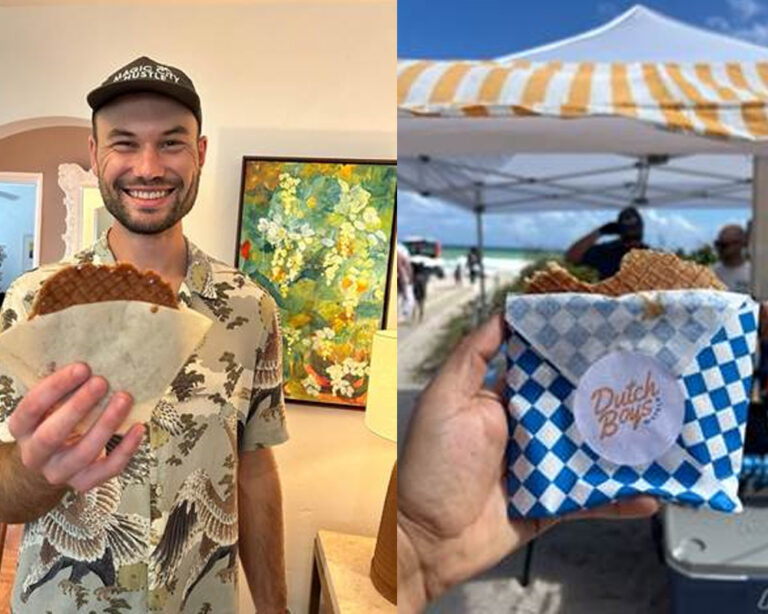
Dutch Boys Wafels Dries Darrow Miami Beach, FL
When Dries launched his project in Miami, he faced some challenges that have led him to rethink and reshape his project goals. Learn the lessons learned during the first six months of his project implementation.
Miami’s markets lack the familiar energy of those in The Netherlands. When Dries lived in Amsterdam, he visited Linden Market weekly, where neighbors gathered for fresh produce and Dutch specialties. To bring this atmosphere to Miami, he launched Connect Miami Beach to revitalize vacant storefronts and increase access to retail and food options. He engaged with local politicians, entrepreneurs, Business Improvement Districts (BIDs), landlords, and real estate agents, initially exploring partnerships with the City of Miami Beach, which offers a three-month pop-up permit.
When Dries engaged with BID Executive Directors, he learned that property owners leave storefronts vacant while waiting for long-term tenants or benefit from tax deductions. There is no incentive to offer retail space below market value, and high demand favors large retail chains.
As a response, he developed a new strategy: stroopwafels! Stroopwafels bring people together—they are large, shareable, fun to eat, and create opportunities to gather. Connect Miami Beach transformed into Dutch Boys Wafels, staying true to the goal of creating economic opportunities and engaging diverse communities.
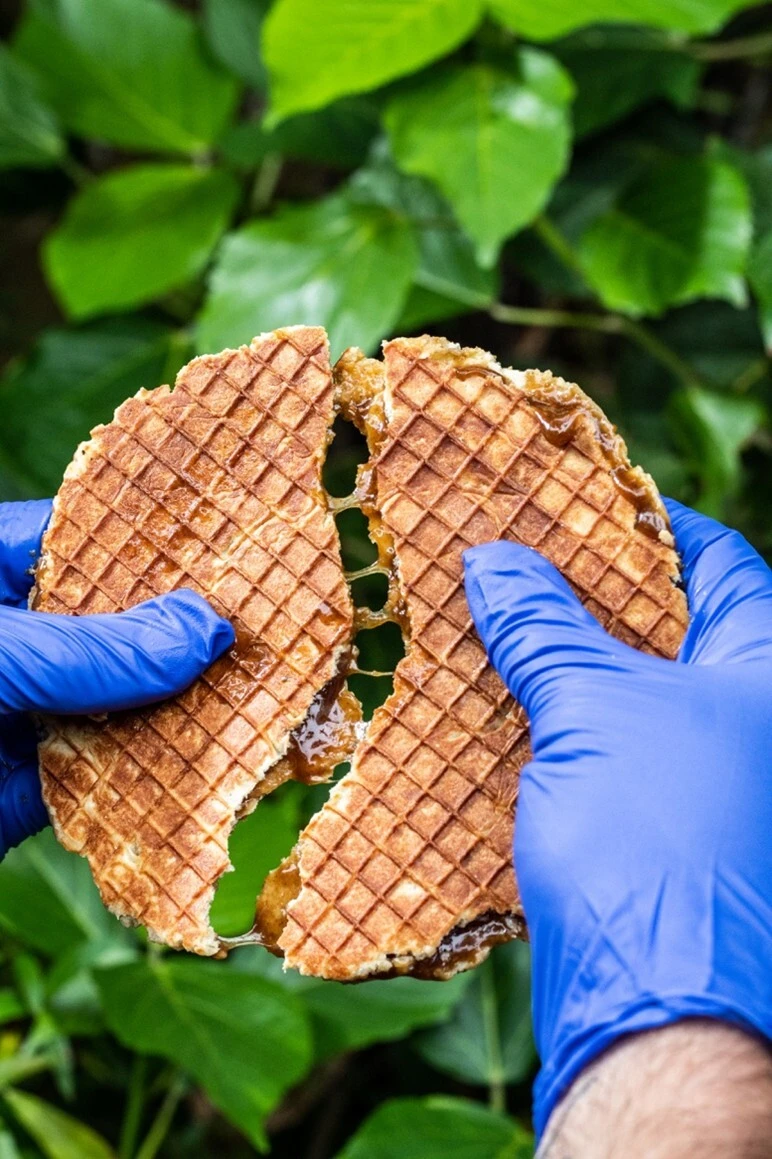
Over the last six months, Dries tested Dutch Boys Wafels at various pop-ups. The first event at Surfside Farmer’s Market was disappointing, – many attendees were health-conscious or kept kosher.
To better understand Miami’s diverse communities, I decided to vend in Overtown, Dadeland, Little River, and North Beach, where I received positive feedback.
Although the initial attempt was unsuccessful, Dries continued making stroopwafels and networking. While earning his master’s degree in The Netherlands, he also took a stroopwafel course. When he returned to Miami, he applied to Smorgasburg Miami, one of the largest outdoor food markets in the U.S. and launched on February 1st.
To gauge interest, Dries posted on Nextdoor, asking neighbors what types of businesses they wanted in vacant storefronts. His posts received nearly 100 comments each, confirming that residents want more places to eat, socialize, and play. Due to the uncertainty of securing a physical location, he focused on selling an experience through Dutch Boys Wafels.
Networking was the only way to find retail space, so Dries approached BIDs and City Commissioners. While some were interested, landlords remained unwilling to offer temporary leases at lower rates.
Dries sent messages to real estate firms but struggled to find an appropriate space. The closest he got was a pop-up on 41st Street, but they refused his offer due to late notice. A persistent problem was determining property ownership and how to contact landlords.
Dries drafted proposals for City officials, landlords, and business owners, but none received third-party support. A major issue was the lack of commitment from local businesses. While working with Alexander Suma on climate start-ups, the idea to sell stroopwafels at markets emerged. Dries realized the product was perfect for improving social relations and economic opportunities.
Dries continues contacting business owners and community members to uncover opportunities to activate vacant storefronts. His placement at Smorgasburg Miami allows him to interact with more individuals and explore potential locations.
At this point, Dries has not found a location for Connect Miami Beach. Dutch Boys Wafels will operate every weekend, and if allowed, the micro-grant will help scale the company. Dries believes stroopwafels can create new opportunities to improve Miami Beach and its surrounding communities.
A Year in Reflection
The Knight Emerging City Champion program was impactful in Dries’ career. He learned much about himself and his skillset in developing and executing his project.
I realized that there are more people like me; people who value social impact more than monetary gain.
He confidently approached city officials, community organizers, and community members, and learned that ideas that seem easy to implement tend to be more difficult than they seem.
In his year with KECC, the highlights were starting Dutch Boys Wafels LLC, a hospitality company that sold Dutch food at large-scale events in South Florida. He started the company to bring people together and learn what residents seek. One of the problems he encountered in Connect Miami Beach, his original proposal to fill vacant storefronts, was attracting local businesses to take a leap of faith with him. Dutch Boys was a prototype for what could be in a vacant storefront once identified and permitted.
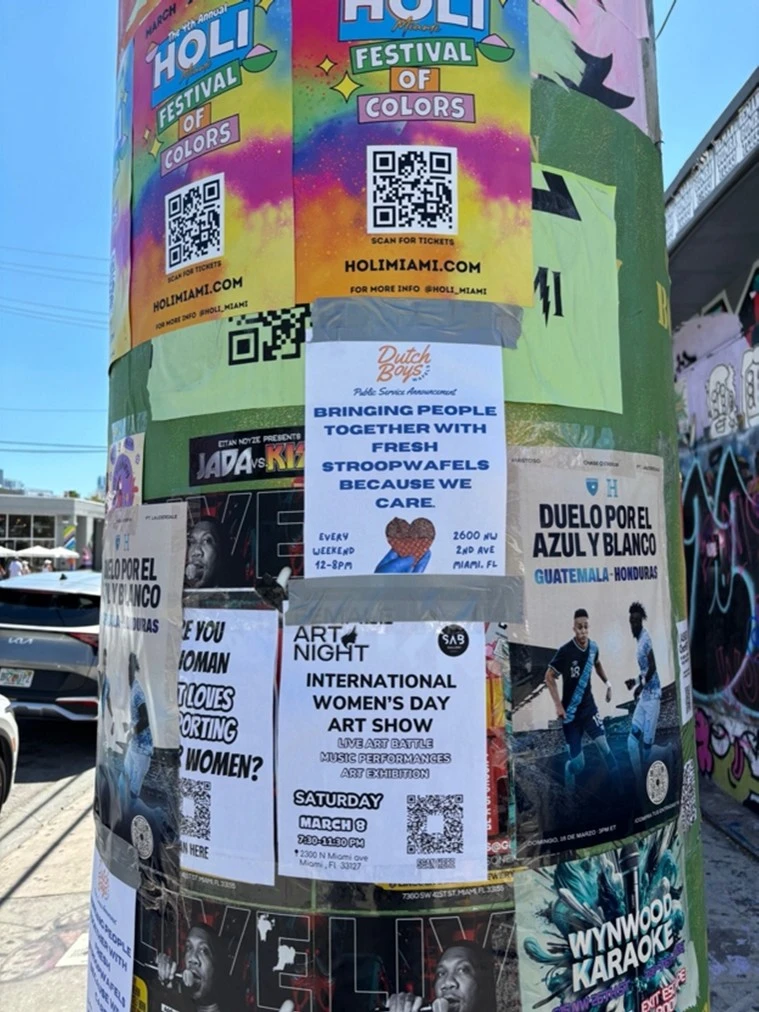
Most successes took place after February 2025. Dutch Boys was accepted to open at Smorgasburg Miami, the largest outdoor food market in the U.S., participated at We Belong Here, a music festival on Virginia Key, and found placement at several events during Miami Music Week. He later traveled to Orlando for Florida Groves music festival, another milestone because he wrote his master’s thesis about them.
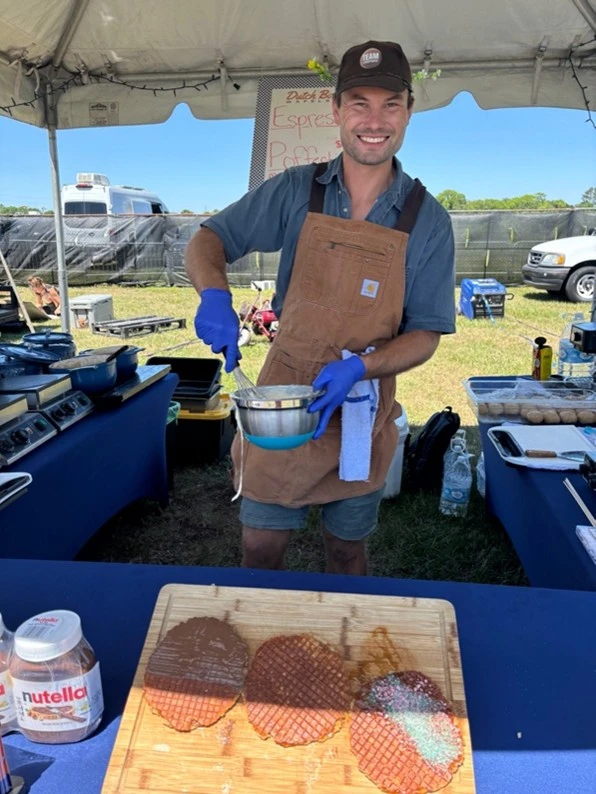
Dutch Boys successfully built a brand for locals that attracted all walks of life, creating a space for them to gather and meet.
One of the main challenges Dries faced was applying for events across Florida and the continental U.S. He was unsuccessful in getting accepted to more large-scale events because the industry is small, festivals have limited space, and food vendors typically travel to events owned by the same companies.
Dries’ project did not meet its stated goals of opening a vacant storefront. He went to city hall, spoke to landlords and realtors, and built relationships, but he could not garner enough support. He also struggled with laws and fees, as property rent is expensive, permitting is complex, and the city has limited grants or incentives.
The impact of Dutch Boys was significant. Dries employed young individuals who had no work experience, providing opportunities for people otherwise overlooked. In total, Dutch Boys baked over 1,000 stroopwafels and used each guest as an opportunity to meet someone interesting. Through these conversations, he learned residents want more local hangout spots and community spaces.
Miami could do better. Miami should make space for local businesses. Miami will need to change.
Looking ahead, Dries plans to open Eetcafé Miami, a Dutch community café and hybrid third space for artists, entrepreneurs, freelancers, and creatives. He has developed a business plan with the Miami Downtown Development Authority and met co-conspirators in hospitality, arts, and real estate who want to support him. Eetcafé Miami will serve as an unbiased, nonjudgmental, and open gathering place for ideas.
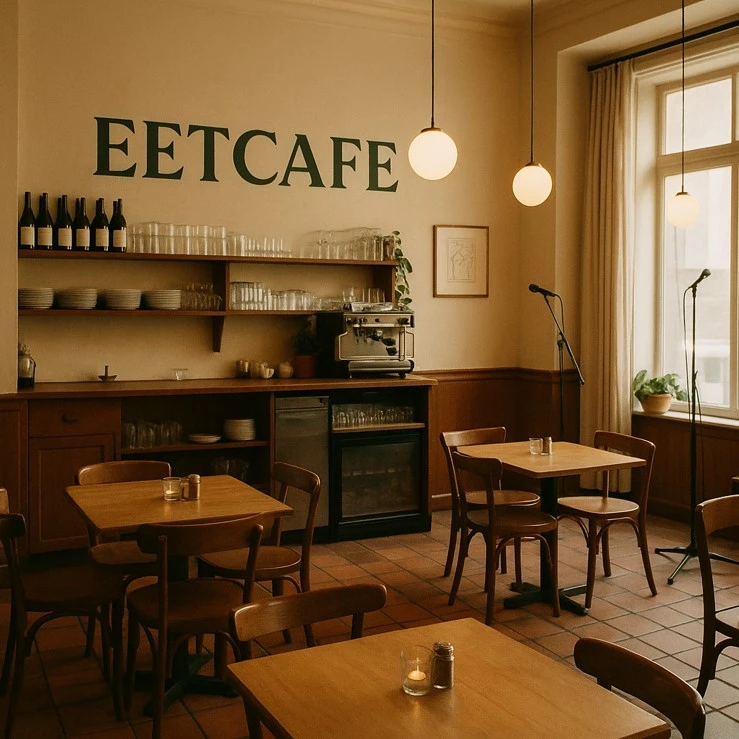
About Dries Darrow
Dries is a self-proclaimed Beach Boy, born and raised in Miami. He was awarded a Knight Emerging City Champion for his original project, Connect Miami Beach, which aimed to fill vacant storefronts with local businesses to increase economic opportunities and access to resources for residents. While pursuing this goal, he pivoted to Dutch Boys Wafels, a hospitality venture bringing Dutch-inspired treats to large-scale events across South Florida, using the project as a prototype for what could occupy Miami Beach’s vacant storefronts. Dries was motivated by the idea that the city could make more space for local businesses and community-centered spaces, especially in a place where property is expensive and big retail chains dominate the market.
Follow Dries on social media @dutchboysfood.